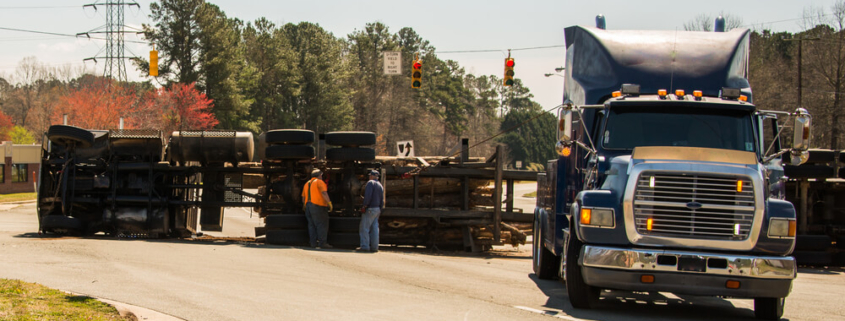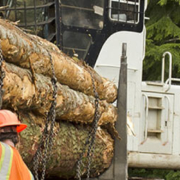The Dangers of Overloaded or Overweight Truck Accidents
Commercial trucks are incredibly dangerous vehicles in the wrong hands. However, it’s not just poor driving that can lead to collisions. When a truck is poorly maintained or loaded improperly, it is a threat to everyone on the road. Overloading or unbalanced loading are major risks that often lead to truck accidents, and it’s crucial to understand what role overloading may have played in your collision.
If you’ve been hurt in a tractor-trailer accident, the team at Bailey Javins & Carter is here to help you. Call our team at 678-981-5370 to set up a consultation with our team’s Atlanta office.
How Do Overloaded Trucks Happen?
Overloaded trucks are a common issue on roads across the country. Basically, trucks are often overloaded due to improper planning or being on a tight timeline. If a company incorrectly estimates the size of a load, they may think that they have plenty of wiggle room when a truck shows up to accept the load.
They may only realize it’s overloaded after they have everything in place. At that point, they have two options: break it up into two shipments and incur the cost of a second truck while pushing back the delivery date, or push ahead with an overloaded truck. Many companies opt to simply go ahead with an overloaded truck, assuming that one oversized haul won’t make a real difference.
However, the risks of an oversized haul occur from the very first time and get worse with each subsequent oversized load.
Dangers Posed by Overloaded Trucks
Overloaded trucks can lead to a wide range of safety issues, including:
- Rear-end collisions: Rear-end accidents are always a risk with tractor-trailers. Trucks need significantly more time to stop than smaller vehicles. When you go and overload a truck even more than what it can safely load, the stopping time is even longer. If a truck driver doesn’t know that their vehicle is overloaded or how to manage their speed accordingly, they could unintentionally cause a rear-end collision.
- Worn brakes: This issue gets worse with each oversized haul a truck takes. It takes an enormous toll on the brakes to slow down or stop with heavy cargo. This is dangerous because trucking companies’ maintenance schedules are based on trucks carrying normal-sized loads. The brakes may fail long before a company even realizes a truck needs maintenance.
- Moving or shifting cargo: Cargo may move in the compartment, shifting the weight balance of the truck and making it harder for the truck driver to keep control of the vehicle. Additionally, if there is too much cargo for the truck, it may fall out of the truck onto the roadway. This can cause additional collisions and lead to a loss of cargo.
- Rollover collisions: Rollovers are a serious risk for truck drivers in the best of situations, and an overloaded truck is certainly not the best of situations. An overloaded truck is at even greater risk of a rollover.
- Blown tires: The tires suffer lots of wear and tear in their normal hauls. They go through even more when a truck is carrying more than it technically should. Without proper inspections and maintenance, this can lead to tire blowouts that leave cargo strewn across the road and a truck blocking the highway.
Regulatory Limits in Place to Avoid Overloading
There are extensive regulations in place to ensure that trucks carry appropriately sized loads at all times. When a truck driver or cargo loader violates these regulations by overloading a vehicle, they put themselves in serious legal danger. If an East Point truck crash happens—and that is very likely when a truck is overloaded—liability could be in question. Odds are good that the victim’s attorney will uncover the fact that the truck was overloaded and point to Georgia state or federal regulations to ask why that was allowed to happen. This often leads to a lawsuit.
Injured in a Truck Accident? Contact Bailey Javins & Carter Now
If you or someone you love has sustained injuries in an Atlanta truck accident, don’t wait to find out if you are owed compensation. Let the team at Bailey Javins & Carter help you through this time. Get in touch online or call us at 678-981-5370 to set up your consultation now.






 Insurance Adjusters misrepresenting your account of an accident
Insurance Adjusters misrepresenting your account of an accident




